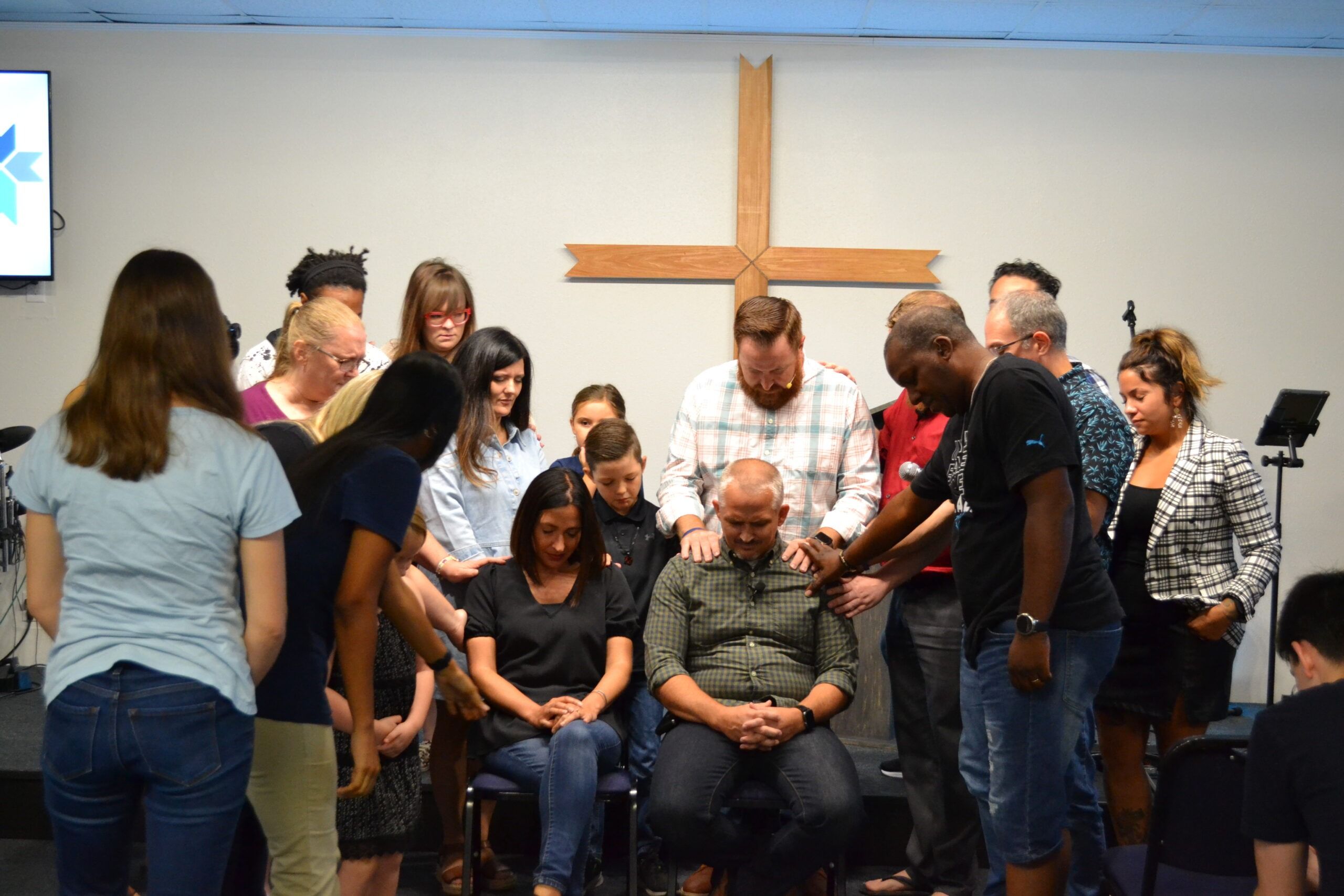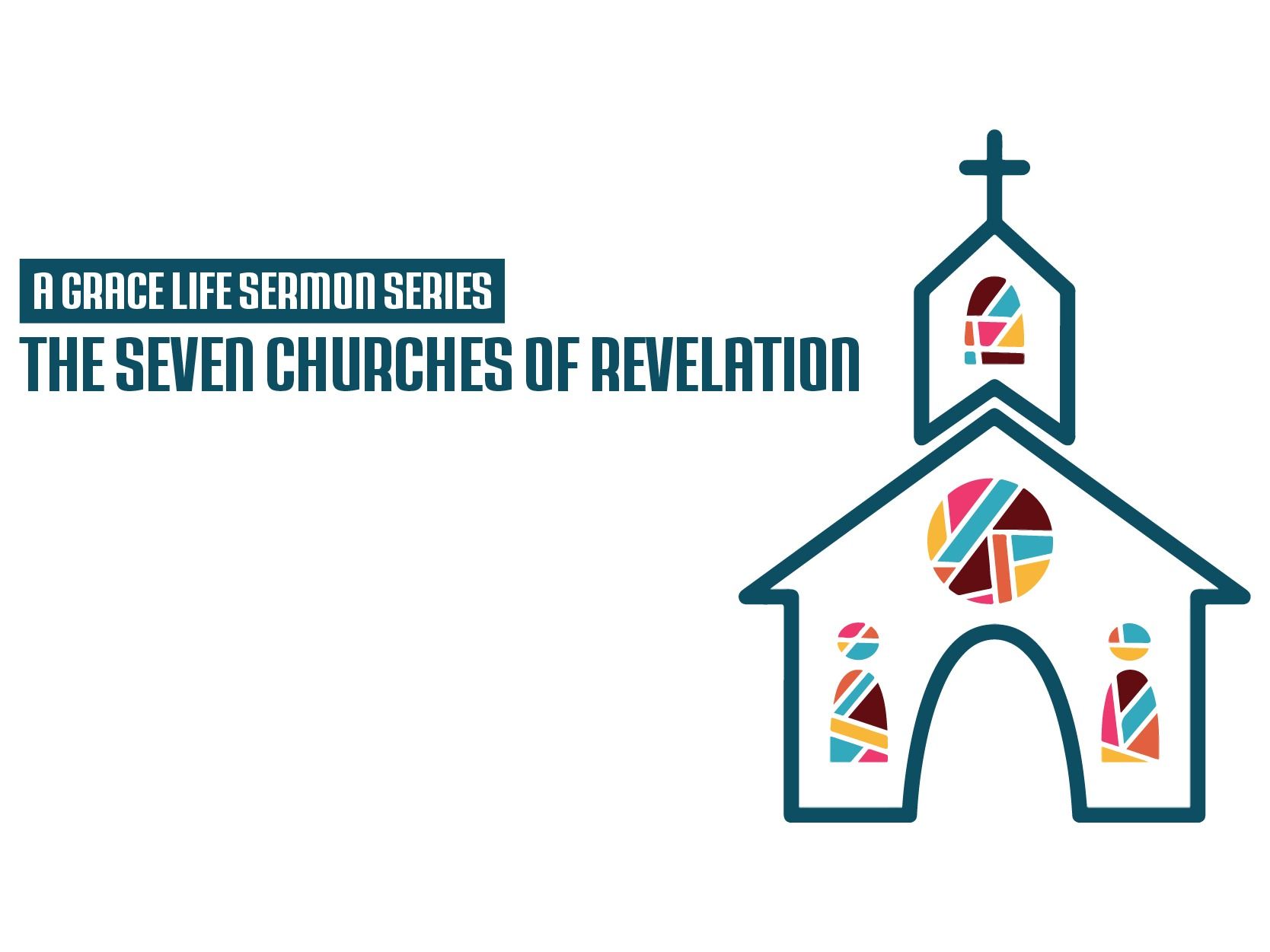* This post is part 4 of a series on Expository Preaching in the Local Church, where we are taking a look at the meaning of “Expository Preaching”, its Biblical precedence, and the importance of Expository Preaching in the life of our church. Read part one here. Read part two here. Read part three here.
Scottish Pastor John Knox (1514-1572) once said, “I have never once feared the devil, but I tremble every time I enter the pulpit.”
There is no greater joy than to stand before the gathered church and proclaim God’s Word. I look forward to it every week, and the weeks I’m not preaching, I miss it. I love preaching God’s Word to God’s people! But every week I’m reminded of the weighty task of preaching.
As we close out this four-part series on Expository Preaching in the Local Church, I want to end by taking a look at preaching at our local church, Grace Life Church. While the typical Sunday sermon at Grace Life is roughly 45 minutes, there is a lot that goes into the Preaching Ministry of our church. Below, we will look at 1) the sermon writing process, 2) the sermon audience, and 3) the sermon goal.
The Sermon Writing Process
It’s Sunday afternoon. The sermon has been delivered. I’ve eaten lunch and I’m likely on the couch preparing for a nap. The Sunday afternoon nap resets the week for me. Before I fall asleep, I walk through the sermon. I note the portions that appeared to be helpful, I think through the illustrations to see if they were clear, and I pray the Lord’s words read that morning will have a lasting impact on those who hear it. When I wake up from my nap. It will be time to prepare for the next sermon.
It’s Sunday Evening. I already know what I’m preaching in less than a week and the internal countdown timer is rapidly dwindling in the back of my mind. I’ve looked at my schedule for the week and I block out time to work on my sermon. At some point before I head to bed, I will read the next portion of Scripture that I will preach.
It’s Monday. After I complete my typical Monday administrative responsibilities, I spend time praying and reading through the text several times. I underline key words, circle words that I need to know more about, draw lines to connect the text to what was said before and after; all of which is to determine the one true intended meaning of the text. By the end of the day on Monday, I know I can summarize the text.
It’s Tuesday. Today, I’ll spend time in commentaries and other research materials, seeking to know more about the text. I’ll dig deeper into phrases and words that aren’t necessarily easy to understand. I’ll cross reference other portions of Scripture. I’ll spend time reading on the main topic of the text. By the end of the day on Tuesday, I’ll have completed the bulk of the study and will prepare to write the outline of the sermon on Wednesday.
It’s Wednesday. Today, I’m taking everything I know about the text and will begin preparing to preach it on Sunday. I want to avoid sermons that are just running commentaries of the text. I want to bridge the text of Scripture to everyday life. Today, I prayerfully work through my introductions, illustrations, sermon points, and main applications. By the end of the day, I will be ready to write my sermon manuscript.
It’s Thursday. Today I rest from working on the sermon.
It’s Friday. Today, I will take my sermon outline notes and begin turning them into my sermon manuscript. I prayerfully write my sermon manuscripts word for word as if I were preaching them in front of an audience. This helps me work on transitions, illustrations, and the flow of the entire sermon. My goal today is to make the sermon as clear as possible. I want new believers to understand the text. I want children to understand the text. I want mature believers to love the text more. Writing the sermon manuscript helps me bring clarity to the sermon. By the end of the day, I will have completed the writing of the sermon. I know I can stand and preach what is written.
It’s Saturday. Today will be spent with my family doing the things we love. We catch up on necessary responsibilities and we rest. But the sermon timer is still running in the back of my head. I’m thinking through illustrations that may be clunky or going over portions of the text that are difficult to grasp.
It’s Saturday Evening. The kids are in bed and I’m on the couch. I get my laptop out and I take my sermon manuscript and I turn it into my sermon notes: a page of paper that will fit right inside my Bible. I trim out material that is unnecessary to the content of the sermon. This may mean removing illustrations or extra passages of Scripture. I check once again that everything appears to be clear. I pray as I lay my head down on my pillow, already feeling the weight of preaching.
It’s Sunday Morning. I wake up and begin preaching the sermon. I want to go through the entire sermon, aloud in the car or quietly in my head, before I actually preach it. I don’t want to be tied to my notes the whole time, but rather I want to know the text. I want to be able to preach the sermon even if my notes are lost.
As the timer gets closer to 10:20 am, I remind myself that this is God’s Word and the people in front of me desperately need the Jesus of the Bible. I remind myself that the Holy Spirit is working in me and these words are to be honoring to the Lord. I remind myself that my identity is not in how great a preacher I am, but rather my identity is in Jesus Christ. I remind myself that the sermon is never finished, even after I close my Bible. I know God’s Word never returns void and that the Lord may use the sermon for years to come.
And I hold to those reminders until my nap comes and it’s time to begin another week of sermon writing in the midst of other pastoral responsibilities.
The Sermon Audience
The main Sunday morning audience at Grace Life Church is made up of the people of Grace Life Church. These are the people I know I will be preaching to week in and week out. I’m not preaching to another church or an audience made up of a certain political party or an audience mainly of lost people. I’m preaching to the redeemed people of God who make up Grace Life Church. However, I know that not everyone in the chairs in front of me belongs to our church, and therefore, I know I must point sinners to the Savior.
The central theme of the Scripture is to bring sinful mankind to a saving knowledge of Jesus Christ. Everything in the Old Testament pointed to the Messiah. The New Testament is written to point sinners, Gentiles and Jews, to this same Messiah. So if the purpose of the Bible is to bring sinners to repentance, should that not be the preacher’s main purpose as well? Paul discusses this very topic in Romans 10:13-15. Paul states that whoever calls on the name of the Lord will be saved from their sins. This of course is the message that God wants all humans to hear. Romans 10:15: “How are they to call on one they have not believed in? And how are they to believe in one they have not heard of? And how are they to hear without someone preaching to them?”
In order for someone to hear the gospel of Christ, it must first be proclaimed to them. Unbelievers will never hear about the one who loves them and died for their sins until someone tells them about this Divine love. The central theme of the Bible is the redemptive story of Christ and His forgiveness of sins and in order for this theme to reach the hearts of the lost, it must be preached. Therefore, at some point in the sermon, I am going to call sinners to repentance, just as Jesus did (Matthew 4:17).
Once the message of forgiveness through Christ has found its way into the heart of the sinner, this transformed individual begins a long journey in an ever growing relationship with Jesus. This is sanctification. Along the way, there will be setbacks, victories, joy, and sadness. How can these new believers and every one of their brothers and sisters in Christ overcome the struggles they will face in their walk with God? It comes back to the preaching of God’s Word.
In Paul’s second epistle to Timothy, he tells Timothy how to help these believers. Simply, give them the Word. 2 Timothy 3:16-17 states, “Every scripture is inspired by God and useful for teaching, for reproof, for correction, and for training in righteousness, that the person dedicated to God may be capable and equipped for every good work.” A few verses later, in chapter 4:2, Paul instructs Timothy to preach the Word. This preaching should consist of reproving, rebuking, and exhorting. These three things are what make the Bible useful according to Paul’s precious statement in 3:16-17.
The preacher’s message should consist of reaching the lost for Christ as well as helping and encouraging believers. God’s word convicts (reproof), it corrects the sinner, and it instructs the reader on how to live a righteous life. This must be done through the preaching of the Word of God.
The Sermon Goal
Every passage was written to bring glory to God by addressing some aspect(s) of our fallen condition. By correction, warning, diagnosis, and/or healing of this fallenness, a text reveals God’s means for enabling his people to glorify him and to know his grace both in the passage’s original context and in the present situation.
There is nothing more powerful than God’s Word and it is powerful and effective in the life of every soul because it is inspired by a Holy and Mighty God. A powerful, life changing Word must be preached because man’s fallen sinful nature must be addressed. The goal of every sermon is to draw the hearts of the people to God.
One of the greatest responsibilities in the world is the one that the preacher holds. He is responsible for relaying what God has intended for believers to hear. Every message is unique in the way the preacher delivers it, but each message should draw the listener to God the Father. The Bible clearly states that preaching is extremely important for the lost to be found and for the sheep to be shepherd. Jay Adam’s states in his book Preaching with Purpose:
“The purpose of preaching , then, is to effect changes among the members of God’s church that build them up individually and that build up the body as a whole. Individually, good pastoral preaching helps each person in the congregation to grow in his faith, conforming his life more and more to Biblical standards. Corporately, such preaching builds up the church as a body in the relationship of the parts as a whole, and the whole to God and to the world.”
Because of the authority and sufficiency of God’s Word, I know that everytime the Word is rightly proclaimed, then I know that I have done my job. The Holy Spirit will do the rest of the work. He will be the one to take those words and pierce the heart of the listener. He will be the one to strengthen their faith. He will be the one to transform their hearts.
And that is my prayer behind every sermon I preach. I pray that the Holy Spirit will use the inspired Words of Scripture to change your heart and to make you more like Jesus.
By His Grace,
Pastor Matt




